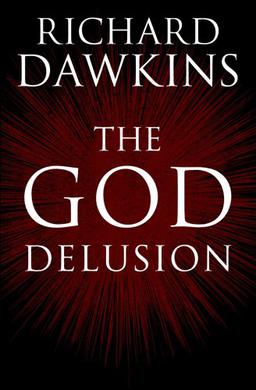If I were to summarize this book in a sentence - A cleverly written book. The author obviously knows what he is talking about with all the painful (??) research he must've done over the years. So yes, this book is about Atheism and why the concept of God is a delusion as the title says.
When the book begins with a quote - "Isn't it enough to see that a garden is beautiful without having the believe that there are fairies at the bottom of it too?" it pretty much sums up the tone for the entire book. The book as such is a huge collection of quotes, passages and lectures from many people with a bit of commentary interlined by Mr. Dawkins. To know that such a book can actually become a bestseller - we must give it up for Dawkins. A clever man indeed. Inspite of being an Atheist book the word God was written with the G instead of g throughout. Guess he couldn't break the rules of grammar? When did God influence grammar? Hmm...
The basic premise of the book revolves around the differences between Darwinistic theory of evolution and the "biblistic" theory of creationism. He very clearly puts a reasonable boundary for his thoughts. He does not attack any and every representation of God. He limits himself to supernatural God and specifically about Abrahamic religions (Jewism, Christianity & Islam). Although he briefly touches upon other religions such as Hinduism, he does not consider Buddhism as a religion. He calls it a philosophy.
There is an interesting 7 scale categorization made to distinguish different levels of Theism and Atheism starting from someone who just does not believe but knows there is God and one who knows there is no God.
Rather than proving or disproving the concept of God this book brings out all the dirty linen of Christianity, Islam and Jewism articulated in a very succinct fashion that it would make one cringe to be called a Christian or Muslim or a Jew. It would make one wonder - is that really what we are basing our beliefs on? Unfortunately (or fortunately?) there has been enough material for him to collect and paint A picture. This book delves a lot on articulating various stupid acts that has happened in history in the name of religion rather than proving anything one way or the other. Am sure there are enough acts of stupidity in the name of science, but that is not the topic of this book is it? :-)
Towards the end he attempts to look at the "softer" parts of religion where it is supposed to be helping mankind. I don't think he had any strong argument to prove why religion cannot be helpful for consolation or inspiration.
Eventually the book ends with a scientific explanation for an illusionary world which was long captured in Hinduism as "Maya".
All in all an interesting read, a good collection of passages that support the theme, but does not seem to prove anything either way.
There were quite a few interesting quotes throughout the book. As always I've selected a few that interested me the most.
Some people have views of God that are so broad and flexible that it is inevitable that they will find God wherever they look for him.
We have names for people who have many beliefs for which there is no rational justification. When their beliefs are extremely common we call them "religious"; otherwise they are likely to be called "mad", "psychotic", or "delusional".
Many of our human ailments, from lower back pain to hernias, prolapsed uteruses and our susceptibility to sinus infections, result directly from the fact that we now walk upright with a body that was shaped over hundreds of millions of years to walk on all fours.
Predators seem beautifully designed to catch prey animals, while the prey animals seem equally beautifully designed to escape them. Whose side is God on?
Could irrational religion be a by-product of the irrationality mechanisms that we originally built into the brain by selection for falling in love? Certainly religious faith has something of the same character as falling in love (and both have many of the attributes of being high on an addictive drug).
Bernard Shaw - The fact that a believer (in God) is happier than a skeptic is no more to the point than the fact that a drunken man is happier than a sober one.
At what age does any developing embryo, of any species become capable of suffering?
"Really", for an animal is whatever its brain needs it to be, in order to assist its survival. And because of different species live in such different worlds, there will be a troubling variety of "reallys".
I guess I come under a category somewhere between a "Deist" (who apparently believes in a supernatural intelligence, but one whose activities were confined to setting up the laws that govern the universe in the first place) and a Pantheist (where God is used as a non-supernatural synonym for Nature).
Guess the bottom line is - Vaazhavae Maayam!! (Life is a Delusion!!) :-)
Cheers
C
